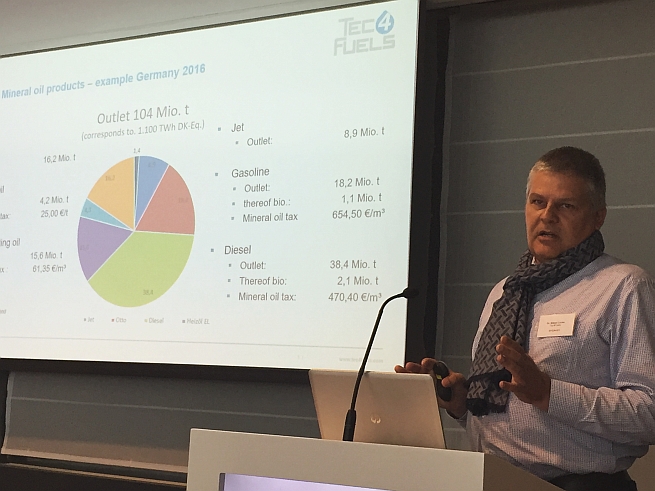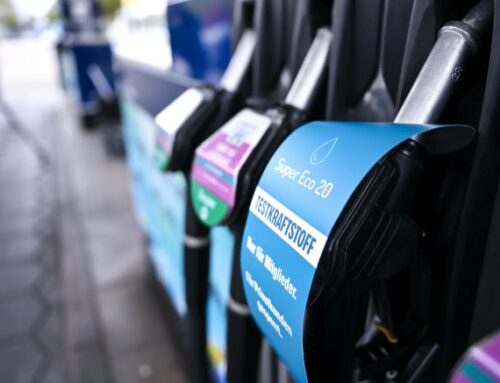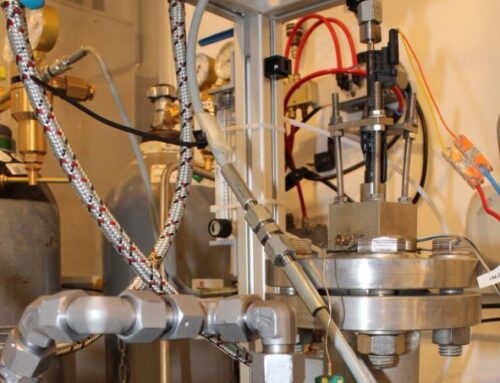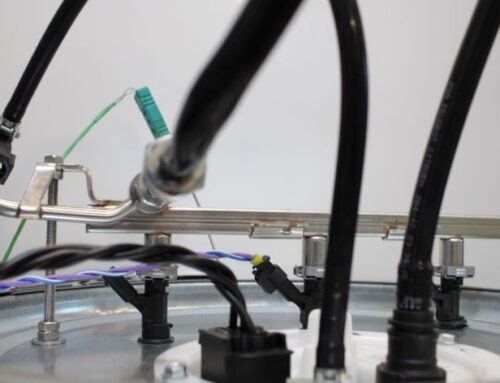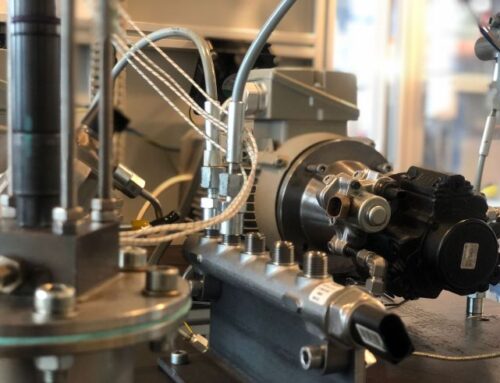15 June 2018 –
Current studies show that new greenhouse gas-reduced liquid energy sources, so-called e-fuels, can play an important role in achieving climate targets. One particular advantage of such fuels is that they can be stored, transported and used in the same way as petrol, diesel or heating oil. The use of climate-friendly and low-emission Fuels in technologies already available today is also a research and service focus of TEC4FUELS GmbH. Managing director Klaus Lucka pointed out trends in the research and current model projects at the beginning of of of June in a lecture on the occasion of a Workshops of the European fuel oil federation Eurofuel.
Basis of the lecture was an investigation of publicly promoted research projects in Germany, which concerned themselves in the period from 1996 to today with the research and development at future fuels (Future Fuels) . In principle, this involves the production of alternative liquid hydrocarbons from various regenerative sources (X-to-liquid, XtL) with a high greenhouse gas reduction potential. In a first step, around 40 research projects were researched in Germany with research and pilot plants dealing with the production of liquid energy carriers from waste and residual materials of biogenic origin (biomass to liquid, BtL) and with synthetic E-fuels based on electrolytically produced hydrogen and carbon, in particular from CO2 streams (power to liquid, PtL). Common to all production paths is the goal of as closed a carbon cycle as possible between production and use.
The requirements for synthetically produced fuels are manifold and demanding. For example, they must offer high greenhouse gas savings potential, demonstrate sufficient resource potential and avoid competing uses. In addition, they should be usable in the existing infrastructure, i.e. compatible with new and old technical systems as well as miscible with conventional fuels (“drop-in quality”), to name just a few of the requirements. TEC4FUELS works on these issues and develops new test procedures and carries them out under realistic conditions on its own test benches. The research activities and technical services are aimed at ensuring the operational safety and a long service life of both new and existing technologies for the use of new liquid fuels. Practical, reliable and affordable solutions are ultimately the prerequisite for customers to accept climate-friendly e-fuels.
Around 45 participants representing European companies in the petroleum industry, associations, non-governmental organisations and research institutions discussed in the workshop which paths for the production of “Future Fuels” appear particularly promising, which technical challenges have to be overcome and which political framework conditions are required for a market launch.
